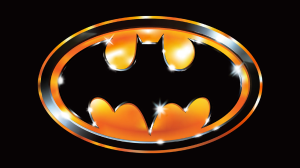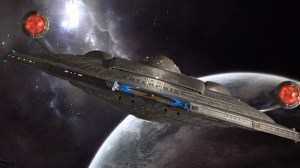Created and narrated by Rod Serling, the anthology horror series ran from 1959 to 1964, telling eerie short stories about the supernatural and extraterrestrial. The Twilight Zone‘s five-year run was universally praised by critics and audiences alike, and today, the show is widely viewed as a pioneer of television. However, The Twilight Zone was not immune to controversy. In fact, one installment was such a disaster that it became the only episode of The Twilight Zone to be taken out of circulation after its original airing and was pulled from the airwaves for decades after its initial premiere.
Videos by ComicBook.com
“The Encounter” aired as The Twilight Zone‘s 151st episode, premiering in May 1964. Its narrative centers on a white American World War II veteran named Fenton, played by Neville Brand, and a Japanese-American man named Arthur Takamori, portrayed by George Takei. The two spontaneously meet in Fenton’s attic while Takamori is searching for work. What initially appears to be an ordinary meeting between a pair of average Americans quickly devolves into conflict, and even worse, racist stereotypes.
What Happens in “The Encounter”?
As the two men cordially share a beer in the attic, Fenton recalls his experiences from the war and shows Takamori a Samurai sword he claims he took from a Japanese officer who tried to take his head off, though he later admits he killed the soldier in cold blood. The words, “the sword will avenge me,” are engraved on the blade in Japanese, and the episode suggests that the sword is influencing Takamori to kill Fenton as revenge. Fenton clearly displays his subconscious prejudice toward Takamori when he refers to him as “boy” several times, which Takamori calls out. The two trade stories from the war — Fenton about his service in the Pacific Theater and Takamori about his experience as a child in Hawaii during the attack on Pearl Harbor. As the tension rises and Takamori repeatedly finds himself drawn to the sword, he attempts to leave, but the door won’t open. Moments later, a scuffle erupts, and Fenton ends up impaled by the blade. After Fenton dies, Takamori, sword in hand, shouts, “Banzai!” and jumps out the window, likely to his death.
“The Encounter” certainly doesn’t rank among The Twilight Zone‘s better episodes, as it fails to produce the air of mystery and paranormal terror that the show is so commonly revered for. Brand and Takei are undoubtedly skilled actors, and they impress in their roles in “The Encounter.” But, the controversial elements that resulted in the episode’s 50-plus-year ban make it difficult to enjoy.
[RELATED – One Episode of The X-Files Was So Terrifying That They Pulled It From TV]
Why “The Encounter” Was Banned From TV
The blatant racist stereotyping of Takei’s character prompted much criticism from the Japanese-American community, so CBS removed “The Encounter” from syndication. The episode only made a comeback on television in 2016 when it re-aired on SYFY. Although The Twilight Zone‘s politics were often progressive for its time, this episode was an enormous gaffe. Takei, whose career was later defined by his role as Hikaru Sulu in Star Trek, was one of more than 100,000 Japanese-Americans unjustly incarcerated in the aftermath of the Pearl Harbor attack. “The Encounter” perhaps intended to address prejudice toward Japanese-Americans during and after World War II through a critical lens, however, it merely reinforces the same racist idea that provoked Japanese internment camps in the first place: the notion that Japanese-Americans were the “other” and that they couldn’t be trusted to remain loyal to the United States.
Moreover, Takamori’s admission that his father betrayed the United States and assisted Japanese bombers at Pearl Harbor has no basis in reality. There exists no evidence that Japanese-Americans were involved in orchestrating or facilitating the 1941 attack that triggered the United States’ entrance into World War II. Still, “The Encounter” presents this inaccuracy in an attempt to equal Fenton’s guilt for murdering a surrendering Japanese soldier. One cannot argue “both sides” in this instance as Fenton does because Takamori’s father’s treachery is nothing more than a racist fantasy. So, while there are so many episodes of The Twilight Zone that were amazing both when they aired and today, “The Encounter” is not one that has aged well.
All episodes of The Twilight Zone, including “The Encounter,” are available to stream on Freevee.








